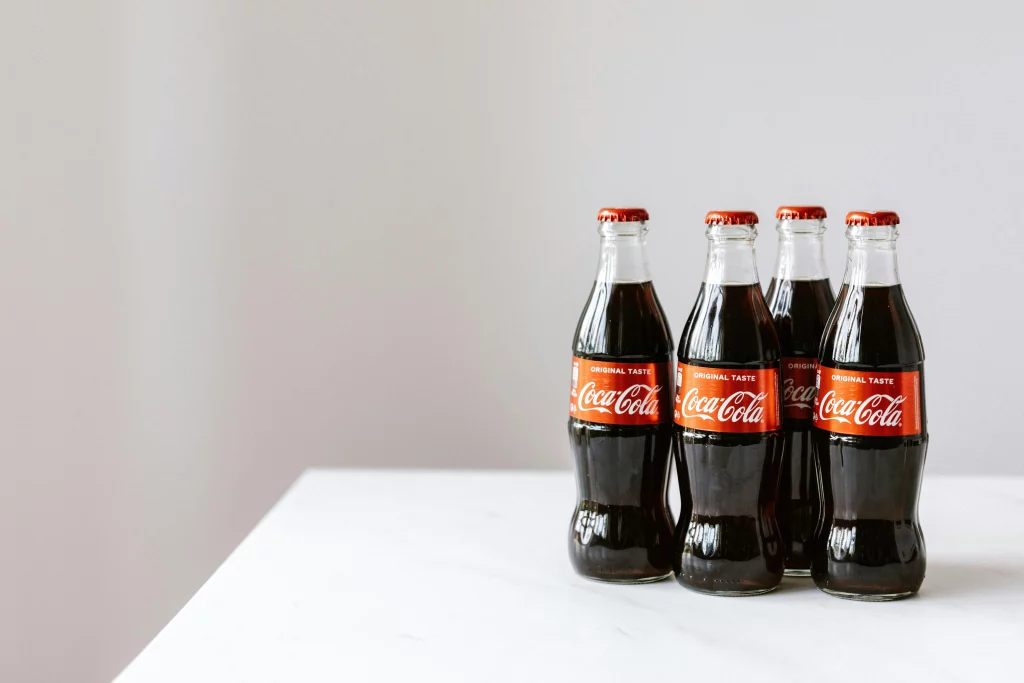Avoid 5 summer drinks that ruin your smile now—summer may be the season for sunshine, fun, and refreshing beverages, but some of those popular drinks can secretly wreak havoc on your oral health. Sugary sodas at social events and brightly colored cocktails by the pool are summer staples, yet these beverages are closely linked to increased risks of gum disease, dental cavities, and erosion of tooth enamel. This analysis identifies five of the most harmful summer drinks for oral health. Additionally, it presents healthier beverage alternatives, along with practical, evidence-based strategies for preserving a vibrant and healthy smile throughout the summer months.
Why Your Summer Drinks Matter for Gum Health
Your gums serve as essential defenders for your teeth and overall oral health. Regular intake of sugary, acidic, or dehydrating beverages introduces various risks, such as:
- Enhanced proliferation of harmful bacteria
- Accelerated accumulation of dental plaque
- Erosion of enamel, which can cause sensitivity
- Inflammation and bleeding of the gums
- Dry mouth, reducing the protective function of saliva
Saliva is the mouth’s primary defense mechanism against tooth decay and periodontal disease. Unfortunately, many popular summer drinks decrease saliva production or leave behind acidic and sugary residues that foster bacterial growth. By identifying which beverages are most detrimental, individuals can make informed choices to safeguard gum health and preserve a bright, healthy smile throughout the season.
Drink #1: Sugary Soda and Cola

Sugary sodas and colas, despite their widespread popularity as refreshing summer beverages, pose significant risks to oral health. The appeal of these drinks is understandable; however, the impact on teeth and gums is far from benign.
The high sugar content found in sodas serves as an ideal substrate for oral bacteria. These bacteria metabolize the sugars, producing acids that attack the enamel, the hard, protective layer of teeth. This acid production not only initiates the formation of dental caries (cavities) but also contributes to inflammation of the gums, increasing susceptibility to periodontal disease.
Moreover, sodas frequently contain phosphoric and citric acids, both of which actively erode tooth enamel. This erosion heightens dental sensitivity and weakens the tooth structure, making it more vulnerable to decay. The carbonation present in these beverages further exacerbates the problem by lowering the pH within the oral cavity, thus fostering an acidic environment that accelerates enamel demineralization.
It is important to note that the risks are not limited to regular, sugar-sweetened sodas. Sugar-free or diet varieties, though lacking sugar, retain their acidic components. As a result, they continue to contribute to enamel erosion and dental sensitivity.
In summary, frequent consumption of sodas and colas can lead to long-term deterioration of both teeth and gums. To maintain optimal oral health, it is advisable to minimize intake of these beverages and opt for healthier alternatives, especially during the warmer months when the temptation for sugary drinks is greater.
Drink #2: Sweetened Iced Teas

Bottled or commercially prepared iced teas remain a popular choice for staying cool during the summer months. Yet, it’s important to note that these beverages often contain significant amounts of hidden sugars and acids, both of which can negatively impact oral health. Many sweetened varieties rely on high fructose corn syrup or cane sugar as primary ingredients. These sugars provide an ideal environment for plaque-forming bacteria, which then produce acids that erode tooth enamel, increasing the risk for cavities and gum inflammation.
Beyond sugars, sweetened iced teas frequently include citric acid and other additives. While these ingredients may enhance flavor and extend shelf life, they also contribute to enamel erosion, heightening tooth sensitivity and susceptibility to decay. The sugar and acid content in many commercial iced teas can be surprisingly high, making it easy for consumers to exceed safe intake levels without realizing it.
For individuals seeking healthier alternatives, freshly brewed unsweetened iced teas present a strong option. Adding a small amount of lemon can offer additional flavor and antioxidants; however, it should be noted that lemon juice is also acidic and may increase the risk of enamel wear. As a precaution, drinking plain water afterward can help neutralize acids and remove residual sugars. Ultimately, by selecting unsweetened versions and remaining mindful of acidity, individuals can continue to enjoy iced tea while minimizing risks to their dental health throughout the summer.
Drink #3: Fruit Juices and Lemonades
Fruit juices and lemonades, while often perceived as wholesome and natural beverages, actually present notable risks to dental health. Despite their reputation, these drinks typically contain high levels of naturally occurring sugars—primarily fructose—which serve as a primary energy source for oral bacteria responsible for tooth decay. When these bacteria metabolize sugars, they produce acids that attack and demineralize tooth enamel, ultimately contributing to cavities and gum irritation.
Beyond their sugar content, fruit juices and lemonades are also rich in citric acid and vitamin C, compounds that lend these drinks their characteristic tartness. Unfortunately, these acids gradually soften and erode the enamel, increasing susceptibility to tooth sensitivity and decay. This erosive effect is exacerbated by frequent or prolonged exposure, such as when individuals sip on juice or lemonade throughout the day, thereby limiting the enamel’s capacity to recover.
Lemonade, in particular, can be especially detrimental due to its high acidity, accelerating the breakdown of enamel if oral hygiene is not rigorously maintained. To mitigate these effects, it is advisable to consume such beverages in moderation, utilize a straw to limit direct contact with teeth, and rinse the mouth with water afterward to neutralize acids and reduce sugar residue. Adopting these preventative measures allows for the enjoyment of fruit juices and lemonades while safeguarding long-term oral health.
Drink #4: Sports and Energy Drinks
Despite their reputation as hydration and performance boosters, sports and energy drinks actually pose significant threats to oral health. These beverages often contain sugar levels on par with sodas, giving bacteria in the mouth ample resources to produce acids that cause cavities and gum disease. In addition to the sugar, ingredients like citric and phosphoric acid further accelerate the breakdown of tooth enamel.
A particular issue arises from the way people tend to consume these drinks, slowly, over extended periods. This habit keeps teeth in prolonged contact with sugar and acids, increasing the window in which enamel is softened and vulnerable. The longer these acidic substances remain in the mouth, the greater the potential for enamel erosion and gum irritation.
Habitual consumption of sports and energy drinks can result in gum inflammation, dry mouth, and increased tooth sensitivity. Reduced saliva flow, a common side effect, removes the mouth’s natural defense against acid attacks and bacterial overgrowth. For optimal oral health, it is advisable to limit intake of such beverages, choose water or sugar-free electrolyte alternatives, and maintain diligent oral hygiene after consumption.
Drink #5: Alcoholic Cocktails and Wine
While summer gatherings frequently include alcoholic beverages, it’s important to recognize the impact these drinks can have on oral health. Alcohol acts as a dehydrating agent, significantly reducing saliva production. Saliva plays a critical role in neutralizing acids and removing harmful bacteria; when saliva levels drop, gums become more susceptible to irritation and infection.
Additionally, many popular cocktails contain added sugars and acidic mixers such as citrus juices, soda, or tonic water. These additives expose teeth to acids that can erode enamel over time. Red wine, a common choice during summer events, is notable not only for its staining properties due to deep pigments but also for its ability to lower the mouth’s pH, creating an acidic environment that accelerates enamel erosion.
To mitigate these risks, it is advisable to consume alcoholic beverages in moderation and to maintain adequate hydration by drinking water alongside alcoholic drinks. Rinsing the mouth with water after consuming alcohol can help neutralize acids and reduce potential damage, thereby supporting oral health throughout the season.
How to Protect Your Smile When You Drink
Indulging in popular summer beverages need not jeopardize oral health. With mindful habits and informed choices, individuals can minimize the risks posed by drinks high in sugar, acidity, or dehydrating properties. Moderation, proper rinsing, and substituting water for certain beverages are practical strategies. By adopting these measures, one can enjoy summer refreshments while maintaining strong teeth and healthy gums throughout the season.
Drink Water Alongside Sugary or Acidic Beverages
Consuming water alongside sugary or acidic beverages serves an important protective function for oral health. By intermittently sipping water, individuals effectively dilute and remove sugars and acids that would otherwise linger on the teeth, reducing their potential to cause harm. Water also stimulates the production of saliva, which plays a crucial role as the mouth’s natural defense mechanism. Saliva not only helps neutralize acids but also supplies minerals necessary for repairing and strengthening enamel. Establishing a routine of alternating between flavored drinks and water can lower the risk of cavities, enamel erosion, and gum disease over time.
Use a Straw
Using a straw when consuming sugary or acidic beverages can significantly limit direct exposure of these substances to the teeth and gums. By channeling the drink toward the back of the oral cavity, a straw minimizes the contact time between harmful sugars or acids and dental enamel. This reduction in exposure is associated with decreased risk of enamel erosion, tooth sensitivity, and irritation of the gum tissue. Especially with beverages like sodas, fruit juices, or cocktails, the use of a straw functions as a protective measure, supporting oral health while allowing individuals to continue enjoying these drinks.
Don’t Sip All Day
Frequent consumption of sugary or acidic beverages throughout the day exposes teeth and gums to ongoing harm. Each sip restarts acid production in the mouth, which extends the period during which dental enamel faces these damaging substances. Consuming drinks within shorter, defined intervals as opposed to continuous sipping reduces the time teeth are subjected to decay-promoting sugars and acids. This approach allows saliva to neutralize acids and aids in enamel repair between drinking episodes. By avoiding constant beverage consumption, individuals can help safeguard their oral health and maintain stronger teeth and gums.
Rinse Your Mouth After Drinking
Rinsing the mouth with water or a fluoride mouthwash immediately after consuming sugary or acidic beverages is a practical step in maintaining oral health. This action helps remove residual sugars and acids, which, if left unchecked, can contribute to the demineralization of tooth enamel and increase the risk of cavities and gingival irritation. Lowering oral acidity through rinsing minimizes enamel erosion. Furthermore, the use of fluoride mouthwash introduces minerals that reinforce enamel strength and enhance gum resilience. Establishing the habit of rinsing after intake of such beverages is a straightforward and effective means of supporting dental hygiene and promoting fresher breath.
Wait 30 Minutes Before Brushing
When acidic beverages such as orange juice, soda, or kombucha, are consumed, the enamel of the teeth temporarily softens due to increased acidity. Brushing immediately after intake can exacerbate enamel erosion, as the softened surface is more susceptible to abrasion. It is advisable to wait approximately 30 minutes before brushing. This interval allows saliva to neutralize the acids and initiate the remineralization process, thereby reinforcing the enamel. Allowing for this brief pause before oral hygiene practices helps safeguard dental health and reduces the risk of long-term sensitivity.
Healthier Drink Choices for Summer
To maintain optimal gum health while still enjoying a variety of refreshing beverages, consider the following alternatives:
- Infused water, enhanced with cucumber or mint, provides a flavorful option without introducing sugars or acids that may compromise oral health.
- Unsweetened coconut water serves as a natural source of hydration and supplies essential minerals beneficial for oral tissues.
- Herbal teas, when served iced and unsweetened, offer a palatable, tooth-friendly beverage with minimal risk to enamel or gum integrity.
- Diluting natural fruit juices, favoring a higher proportion of water to juice significantly reduces both sugar and acid exposure while still delivering a subtle fruit flavor.
- Dairy or plant-based milks supply calcium and other key nutrients that contribute to the fortification of teeth and gums.
Adopting these alternatives can support oral health throughout the summer, ensuring enjoyment of refreshing drinks without compromising the well-being of teeth and gums.
Final Thoughts: Sip Smart for a Summer Smile
Summer beverages are undeniably popular, yet their impact on oral health particularly gums and teeth, shouldn’t be underestimated. Many of these drinks, often high in sugar or acidity, can contribute to dental issues if consumed excessively. Moderation, combined with regular rinsing or hydration with water, can mitigate potential harm and support healthier gums throughout the season.
For individuals seeking tailored advice or experiencing concerns related to gum health, consulting with professionals such as those at GPD Dental is advisable. Their expertise ensures you maintain both confidence and oral wellness, regardless of the season.
Frequently Asked Questions (FAQs)
1. How do sugary drinks affect my gums?
Frequent consumption of sugary beverages significantly promotes the proliferation of harmful oral bacteria. These bacteria contribute to the accumulation of dental plaque, particularly along the gumline. This plaque buildup irritates the gum tissue, often resulting in inflammation and redness, and, if not addressed, may progress to periodontal (gum) disease. Furthermore, high sugar content in drinks markedly elevates the risk of dental caries (cavities). Untreated cavities can exacerbate existing gum issues, ultimately complicating oral health management. Therefore, reducing the intake of sugary drinks is a straightforward and effective strategy to safeguard gum health.
2. Is diet soda safer for my gums?
Although diet sodas contain no sugar, they’re still packed with acids like phosphoric and citric acid, these substances can steadily erode tooth enamel. Loss of enamel exposes teeth and gums to various risks, including increased vulnerability to decay and oral diseases. Over time, this erosion may result in heightened gum sensitivity and inflammation. For optimal oral health, it’s advisable to moderate consumption of all sodas and prioritize water as your main beverage.
3. What’s the best way to enjoy summer drinks without damaging my gums?
To mitigate the detrimental effects of sugary or acidic beverages on oral health, it is advisable to consume water alongside such drinks to dilute harmful substances and aid in their removal. Utilizing a straw can further reduce direct contact between these beverages and the teeth, thereby minimizing potential damage. It is also prudent to avoid prolonged sipping throughout the day, as extended exposure increases the risk of enamel erosion. After consuming these drinks, rinsing the mouth with water can help eliminate residual acids and sugars. Importantly, one should wait at least 30 minutes before brushing teeth to allow enamel to remineralize, as immediate brushing may exacerbate enamel wear.
4. Can alcohol cause gum disease?
Excessive alcohol intake significantly reduces saliva production, creating a dry oral environment where harmful bacteria can proliferate. This bacterial growth heightens the risk of gum inflammation and periodontal disease. Furthermore, consuming alcoholic beverages mixed with sugary sodas or juices exacerbates the problem, as these sugars serve as an additional food source for plaque-forming bacteria. To safeguard oral health, it is advisable to consume alcohol in moderation, select mixers with low sugar content, and maintain adequate hydration by drinking water.
5. How often should I see a dentist to protect my gums?
Regular dental examinations, typically recommended every six months, play a crucial role in preserving gum health and facilitating early detection of periodontal disease. These appointments enable dental professionals to remove plaque and tartar accumulation that may persist despite thorough at-home oral hygiene. Individuals who frequently consume sugary or acidic beverages may experience an increased risk of gum issues, and, as a result, dentists might advise more frequent professional cleanings. Proactive engagement with professional dental care is integral to maintaining optimal oral health over time.


